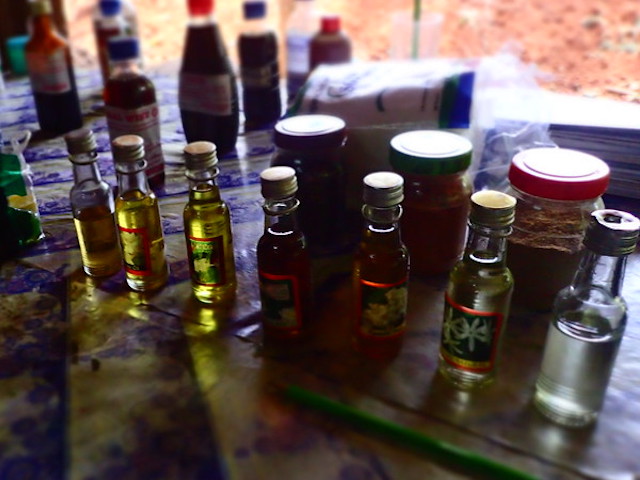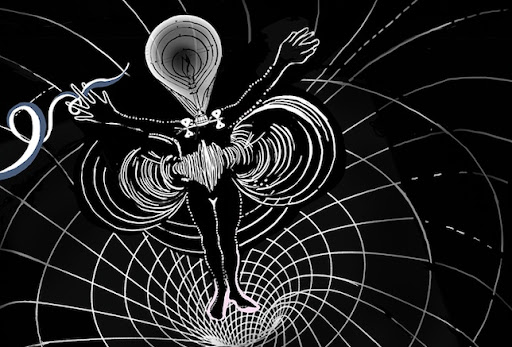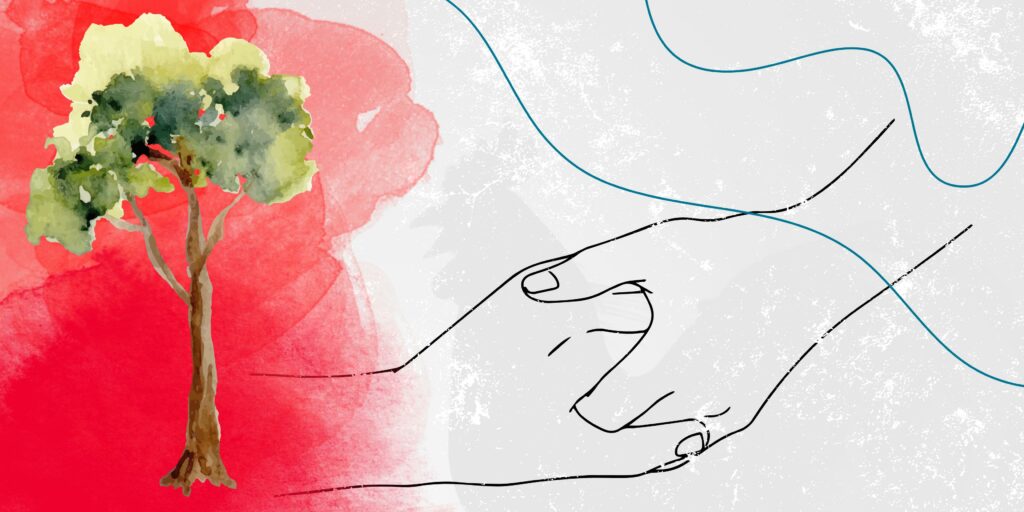Your mother always told you stories as she oiled your hair: of her youth, legends and fables, immigration, your father’s business ventures.

March 26, 2021
Hunched over the workbench in the back of your parent’s store, you roll black ink into the shapes of your mother’s name. Sneha Bazaar, the words wreathed in tendrils that will evoke images of the Taj Mahal and flower-crowned elephants in the minds of customers. You secure the carefully distressed paper to a slender vial filled with generic multivitamins. Your hand-lettered sign lists the vitamins each orange pill contains, promising youth, vitality, and second chances for $12.95.
You’re not sure how it happened, how you went from scholarship offers and 30 Under 30 lists to rejection letters and a review of your only gallery show declaring you “amateur and incoherent.” You tell your parents you are on hiatus, an artist’s retreat.
You pretend that you’re not avoiding everyone’s calls, that you’re busy gathering material and refreshing your mind. Artists do this: breathe new air and meditate and labor; you breathe in the dust of decaying cardboard and escaping flour, drag your brush through a pattern of loops that blaze an inverted glow inside your closed eyelids.
Maybe it’s the right place. Your big break was here, designing the advertisement and labels for Sneha Bazaar Ayurvedic products: tulsi oil and turmeric clay masks, antifungal neem extract, fresh ginger paste for strong immune systems. Your mother didn’t want to sell them. The American customers only came for spices and trinkets, and the Indian customers buy ingredients to make their own. You convinced her, with stories of the spa treatments at the nail salon: mud and wax and aromatherapy. If they’ll pay for mud, you told her, they’ll pay for bitter melon.
The ad hung on the grocery store bulletin board, ran in the local paper. The sight of the store’s name in your careful brush strokes, the warm yellow sun that matched the label of each bottle and jar, laced a delicate mesh of embarrassment and delight through your chest.
The women came with their matching haircuts, their reusable grocery bags, their athletic clothing and eco-friendly coffee cups. They bought balms for stress-relief and tinctures to suppress their appetites. They marveled at your mother’s smooth skin, your thick hair, the shapes of your sister’s body. Their husbands admired your father’s mustache. They bought hair growth lotions and virility powders.
But they came back, grimacing uncomfortable apologies. It was all too strong: the smells and flavors, the persistent colors. Your father took the full bottles, handed refunds over the counter, and with each exchange you felt something snap and wither.
“Don’t worry, chikoo.” His hand thumped your back three times, his most reassuring gesture. “We will find the solution.” A promise, as if you were the one he had let down.
When you arrived, you asked your father if he’d wanted you to be a lawyer like your sister. He ran water over red lentils, readying them to soak, and he laughed. “Radha was a lawyer from the time she could talk,” he said. “Always proclaiming, arguing, convincing. You’re not Radha.”
But a doctor, something like that, you pressed. Something like your cousins, you meant, with their careers and promotions and bonuses, smiling in their photos. Smiling when they asked, “How’s the art?” like your work was an injury and you were still recuperating.
Your father turned away from the lentils to look at you. He placed one cool, wet hand against the back of your neck and used the other to brush the tears off your face.
One day, you found one of your old sketchbooks waiting on your workbench. You shoved it behind a box on the shelf above your head, where your unfocused eyes could not find it. Your parents have stopped asking if you’ve started any new projects but sometimes you can feel the shape of the question pressing against the lull in dinner conversation.
You tell your parents that maybe you will stay, help with the store. They are silent for so long that you think they’ve left. They are looking at each other, conversing in eyebrows and head tilts. “We’ll talk about it,” your mother says.
The first time your father returned from Costco with jumbo-sized containers of vitamins and lotions, you and Radha protested. Even your mother shook her head and left the room, a sign of maximum disappointment. “You can’t lie, Appacha!” you insisted.
He held up one finger. “Not lying. Creative problem solving.” You tried not to smile, but he knew he’d won. “This is where you get it,” you told Radha, pasting your labels to clean bottles. She popped open the multivitamins and passed the bottle beneath your nose. It smelled like plastic and recycled air, like nothing.
Tonight, your mother knocks on the door of the stockroom and you sit up, spine crackling. She holds a message from your sister, a jar of coconut oil and a towel. “I can do it,” you start to tell her, but she is already pushing you away. She sits on the workbench, resting your shoulders against her knees.
She melts the oil in her hands and it flows like lazy water through the seams of her palms. With her chin, she points for you to spread the towel, then your hair. Her fingers crawl along the edges of your scalp, dabbing an outline of oil where your hair meets your skin.
Your mother always told you stories as she oiled your hair: of her youth, legends and fables, immigration, your father’s business ventures. “We built this life so our children could do anything,” she says now, pressing one smooth fingertip down the middle of your forehead. The thick coconut smell cradles you. “We don’t need you to have someone else’s life, chikoo.”
Your arms have folded in like the bundled petals of a sleeping flower, hands cupped over your heart. When her fingertips weave into the hair at the base of your skull, memory unfurls and you stretch out, blooming. Your palms open to the sky: hopeful, ready.



